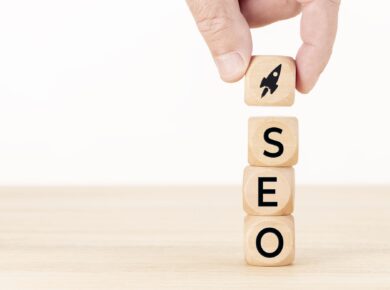In an era where environmental concerns are at the forefront of global discussions, building a sustainable startup has become not just a trend but a necessity. Entrepreneurs are increasingly recognizing the importance of adopting eco-friendly practices and integrating sustainability into their business models. Thankfully, technology has emerged as a powerful ally in this endeavor, providing innovative solutions that empower startups to minimize their environmental impact while still achieving their business goals. This article explores how tech solutions are driving the development of sustainable startups and highlights key strategies that can lead to successful eco-friendly business models.
1. The Importance of Sustainability in Startups
1.1 Changing Consumer Preferences
As consumers become more environmentally conscious, they are actively seeking out products and services that align with their values. Startups that prioritize sustainability are better positioned to capture this growing market segment. According to recent studies, a significant percentage of consumers are willing to pay more for sustainable products, and they prefer brands that demonstrate a commitment to environmental stewardship. By embracing sustainability, startups can build brand loyalty and differentiate themselves in a crowded marketplace.
1.2 Regulatory Pressure and Incentives
Governments worldwide are implementing stricter regulations aimed at reducing carbon emissions and promoting sustainable practices. Startups that fail to adapt may face compliance challenges and potential penalties. On the flip side, many governments offer incentives and grants for eco-friendly initiatives, providing startups with additional financial support to pursue sustainable practices. By proactively adopting sustainable business models, startups can not only comply with regulations but also take advantage of these incentives.
2. Tech Solutions for Eco-Friendly Practices
2.1 Cloud Computing and Remote Work
One of the most effective ways for startups to reduce their carbon footprint is by adopting cloud computing and promoting remote work. Cloud-based solutions eliminate the need for extensive on-premises IT infrastructure, which reduces energy consumption and minimizes electronic waste. Additionally, enabling remote work reduces the need for commuting, leading to lower carbon emissions associated with transportation. By leveraging cloud technologies, startups can create a flexible work environment while simultaneously contributing to a more sustainable future.
2.2 Energy Management Systems
Implementing energy management systems is crucial for startups seeking to minimize their energy consumption. These systems utilize advanced technology to monitor and optimize energy usage, identifying areas where efficiency can be improved. Smart sensors, IoT devices, and energy analytics software can help startups track their energy consumption patterns, allowing them to make informed decisions about energy usage. By investing in energy management solutions, startups can reduce costs and lower their environmental impact.
3. Sustainable Supply Chain Management
3.1 Blockchain for Transparency
Transparency in the supply chain is vital for sustainable practices. Blockchain technology offers a powerful solution by enabling startups to track the origin and journey of their products in real-time. This transparency allows businesses to verify that their materials are sourced ethically and sustainably. Consumers are increasingly demanding information about the sustainability of the products they purchase, and blockchain provides a way for startups to meet this demand while fostering trust with their customers.
3.2 Collaborative Consumption Platforms
Another innovative approach to sustainability is the development of collaborative consumption platforms. Startups can leverage technology to create platforms that facilitate the sharing or renting of goods and services. By promoting access over ownership, these platforms reduce waste and encourage resource efficiency. For example, a startup focused on outdoor equipment could create a rental platform that allows customers to rent gear rather than purchase it, ultimately reducing the environmental impact associated with manufacturing and disposal.
4. Promoting Eco-Friendly Products and Services
4.1 Digital Marketing for Sustainability
Digital marketing is a powerful tool for startups looking to promote their eco-friendly products and services. By leveraging social media, content marketing, and search engine optimization, startups can effectively communicate their sustainability initiatives to a broader audience. Engaging storytelling and authentic messaging resonate with consumers who are passionate about environmental issues. Startups can showcase their commitment to sustainability, share success stories, and educate consumers about the benefits of choosing eco-friendly options.
4.2 Sustainability Certifications and Labels
Obtaining sustainability certifications and labels can enhance a startup’s credibility and marketability. Certifications such as Fair Trade, Organic, and B Corp demonstrate a commitment to sustainable practices and can influence purchasing decisions. By displaying these certifications on their products and marketing materials, startups can attract environmentally conscious consumers and differentiate themselves from competitors. Additionally, being part of a recognized sustainability program can provide access to valuable resources and networking opportunities.
Conclusion
Building a sustainable startup is no longer just an option; it’s an imperative in today’s environmentally conscious market. By leveraging technology and innovative solutions, startups can create eco-friendly business models that minimize their environmental impact while still achieving growth. From adopting cloud computing and energy management systems to promoting transparency in supply chains through blockchain, tech solutions are empowering startups to embrace sustainability in meaningful ways. As consumer preferences shift and regulatory pressures increase, startups that prioritize eco-friendly practices will not only thrive but also contribute positively to the planet. The journey toward sustainability may present challenges, but with the right tech solutions and a commitment to eco-consciousness, startups can pave the way for a greener and more sustainable future.








